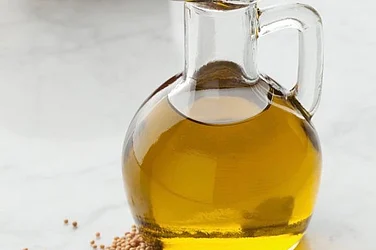To allow farmers tend to their crops on time, the Jammu and Kashmir administration has exempted wholesale and retail shops dealing in fertiliser and pesticides from the COVID19 lockdown.
For 3 Successive Years Apple Produce In Kashmir Takes A Hit
Growers say that due to rapid weather changes and the continuing cold weather and hailstorm, there is extensive damage to apple orchards

Farmers say this will enable them to carry out timely spraying this time, unlike last year when retail shops remained closed during lockdown.
“At times, the law enforcing agencies are stopping farmers (on the streets) but once they are told about (going to buy) pesticide sprays, they let us go,” says Bashir Ahmad Basheer, chairman, New Kashmir Fruit Association.
However, he added, there will be less produce again this year.
“Due to the rapid weather changes and continuous cold weather in Kashmir, and hailstorm, I think the loss to the apple produce is over 50 percent. There is extensive damage everywhere,” he says.
The annual production of apples in the Kashmir Valley ranges from 1.5 million to 1.8 million metric tons.
On?Saturday, hailstorm and thundershowers hit parts of Kashmir damaging the Valley’s horticulture and agricultural produce. Director Horticulture, Kashmir, Aijaz Ahmad Bhat has said that the extent of loss caused to horticulture produce due to hailstorm was “around 40 percent”.
For apple growers throughout Kashmir, the coronavirus hit at the worst time of the apple trade in Kashmir. In 2019, due to the lockdown imposed following revocation of Article 370 on?August 5, the farmers could not visit their orchards. Later, killings of migrant drivers by militants made it difficult to transport their produce elsewhere.
In 2020, during the pandemic lockdown, scab disease caused huge loss to the apple industry. And owing to the COVID-19 lockdown, farmers could not carry out spraying on time, leading to spread of the scab disease. Experts say if farmers miss pesticide spray in spring, it will lead to primary scab to resurface. And once the primary scab surfaces, it is very difficult to control it and even leads to secondary scab.
Last year, continuous rainfall and subsequent dry spell added to the incidence of scab which led to a substantial reduction in the yield.
This year, the government, however, was cautious and has permitted farmers to carry out spraying but cold weather and hailstorm have done the damage.
-
Previous Story
 Taapsee Pannu Confesses Love For Nine-Yard Wonder Dressed In Fusion Style Drape Pant Saree
Taapsee Pannu Confesses Love For Nine-Yard Wonder Dressed In Fusion Style Drape Pant Saree - Next Story


















